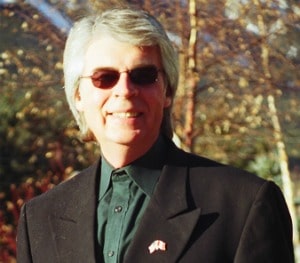
(By Ronald Robinson) “Be yourself!” say the pundits, programmers, and associates. This has always been fundamental advice, delivered with more than sincerity, but rather the strongest of unquestionable certainty. That this is a strategy that confuses the newer on-air personalities is never discussed. Practically, it goes a long way towards stacking severe limitations on the talent and effectively cripples them.
“Be yourself,” while dripping with congenial, good intentions, is a nebulous characterization of another completely vacuous concept that assumes certain psychological conclusions have already been established. Those include: an individual on-air presenter has an innate or conscious model of “who they really are”; it assumes the individual can articulate these positions with some confidence; and it assumes that these positions are appropriate and useful to someone who is heading for the control room.
There is little chance that a performer will be arriving behind the microphone as a fully fledged and glowing, as Abraham Maslow has put it, “actualized individual,” sporting all 12 of the attributes such a person would demonstrate. The psychological community is fairly comfortable with the idea that only about two percent of the population will ever attain such spectacular heights. I can’t disguise my own personal disappointment with another unrealized fantasy.
While a program of self-actualization can be exciting, it is not insisted on by radio as a necessary prerequisite for doing any on-air jabbering. Managers count themselves as lucky, and are quite content to be hiring talent that enjoys the advantages of having no substance addictions, outstanding warrants or disturbing psychological quirks — assuming they can be identified.
“Be yourself” is, at best, an extremely fuzzy concept. At its worst, it is just sludge. Does that mean the talent should be who they really are, as opposed to, who, somebody else? I read recently that talent should think of themselves as “actors — who are playing themselves!” That, I am sorry to report, is the advice of someone with pancake batter for brain matter.
That any of this would come up in a conversation about modern radio is a little disconcerting, especially given the reality that most presenters have little or no opportunity to express either a real or imagined personality. They are, for the most part, no more than trained chimps on roller skates.
Working as a single performer on the radio has nothing to do with interacting with other people, in say, a social setting — a setting that requires much more than a stilted, pre-rehearsed approach to communications. People who are pulling shifts on the air are far more limited in their capacities to behave as flexible, adaptive, creative, improvisational, or otherwise interesting individuals. The structures of most formats don’t allow for such possibilities.
The exception to these dynamics would be in the group-grope morning shows where the personalities are bouncing off, and responding to, others on the program. Indeed, it is the single performers who are left tipping precariously off the window ledge, desperately clinging to their earphone cables.
Even the superior talents who populate a few high-end morning shows aren’t being themselves. They are, instead, performing as the characters they have developed over time. Were they to continue acting out their “characters” when they were off the air, they would become supremely innocuous and annoying almost immediately. We have all worked with just such twisted individuals.
Having said all that, I am still jumping the gun on what the priorities need to be to generate effective communicators for on-air work. Of course, people are encouraged to examine their psyches in efforts to develop their personalities — so long as it’s not on the station’s dime — not that there was ever any chance of that.
Radio, the people who are working the airwaves, and the writers of commercial copy, whether acknowledged or not, have a desperate need to become educated in the strategies and methodologies of communicating to an unseen and unknown radio audience. That rotting “one-to-one” chestnut has no traction or use in reality. To the contrary, the application of the principle is limiting to the communicator and damaging to the audience.
Further, the “one-to-one” concept is an utterly unattainable and foolish premise, as is the equally foolish recommendation to “be yourself.”
Ronald T. Robinson has been involved in Canadian radio since the ’60s as a performer, writer, and coach, and has trained and certified as a personal counselor. Contact Ron at [email protected]





